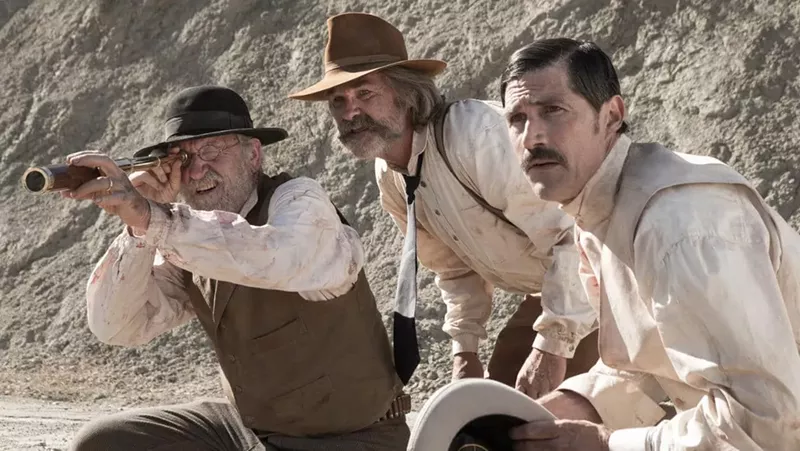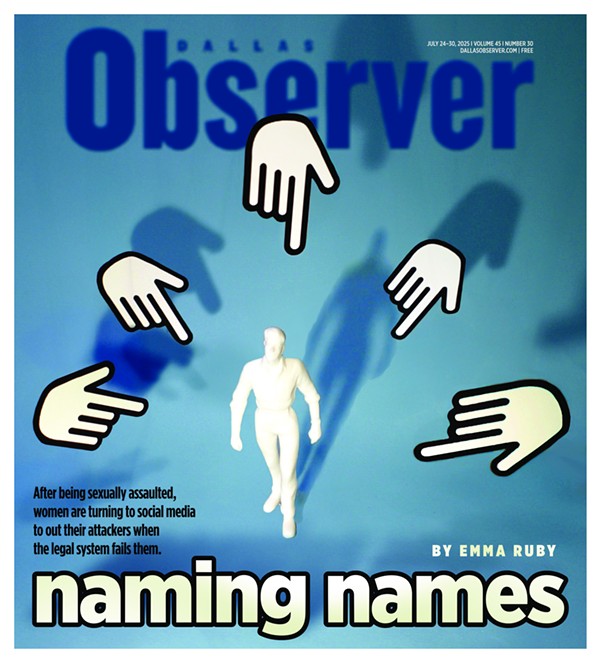“I’ll probably beat you to the draw, but don’t count on me to save you,” boasts John Brooder, a veteran gunslinger with a checkered past, in the darkly revisionist 2015 western Bone Tomahawk. “I’m the most intelligent man here, and I intend to keep us alive.”
Brooder, as played by Lost’s Matthew Fox, is the type of man who speaks only in blunt admissions. When volunteering to join Sheriff Hunt (Kurt Russell) and foreman Arthur O’Dwyer (Patrick Wilson) in the search for O’Dwyer’s wife, Brooder admits that he’s killed 118 men, and over the course of their adventure, he adds to his total. Brooder is uncompromising and refuses those who try to mellow him, leading to a tense standoff with his traveling companions.
“If you want to question my morals, do it later,” he says after killing two travelers who threaten their camp.
Although Brooder is referencing his own fateful decision, his line plays like a self-aware bit of defiance on the part of Zahler, an idiosyncratic writer/director who has grown into one of the most acclaimed cult filmmakers of the past decade. In addition to Bone Tomahawk (which is now streaming on Amazon Prime Video), Zahler also helmed the bare-bones prison film Brawl in Cell Block 99 (also on Prime) and the dirty-cop thriller Dragged Across Concrete (streaming on Cinemax and HBO).
Bone Tomahawk is a bold debut — a mix of classic Western prose and shocking body horror, it follows the journey of four lawmen who hunt a tribe of ruthless cannibals in the post-Civil War South. The film was a major hit at grindhouse film festivals and grew in its popularity thanks to its availability on streaming platforms. Zahler’s film came to life through the belief of Dallas Sonnier, a producer and executive from Dallas who funded the project through his production company Caliber Media.
Sonnier was initially based out of Los Angeles, but after the success of Bone Tomahawk, he moved his operation back to his hometown of Dallas, where his production company Cinestate worked on Zahler’s two follow-up films, Brawl in Cell Block 99 and Dragged Across Concrete. Cinestate has committed to spotlighting experimental genre films that couldn’t be made in Hollywood.
“That’s the Bone Tomahawk model,” Sonnier says of the company's mission statement. “We simply find great creators we’re passionate about. We work like hell to produce their projects. We send movies, books and films out to you with full confidence. And we start all over again.”
Sonnier spotlights filmmakers like Zahler, who are able to energize classical genre films with a fresh spin and aren’t afraid of controversial material and graphic violence. In addition to Zahler’s films, the studio has also produced the contained militia thriller Standoff at Sparrow Creek, the horror reboot Puppet Master: The Littlest Reich, the dark cult comedy Satanic Panic and the outrageous horror thriller VFW. The films have all been acclaimed, but Zahler is undoubtedly the breakout star of the North Texas film scene.
All three of the director’s films represent a grimness and honesty that are rarely seen in Hollywood genre films, exploring hard truths that aren’t acknowledged in lighter fare. In Bone Tomahawk, Zahler examines the cycle of violence and dehumanization of indigenous people inherent to the Western genre, and in Brawl in Cell Block 99, he looks at the systematic corruption and moral grayness of state-run prison systems.
Being outside of the Hollywood scene, Zahler’s films have certainly courted their share of controversy. In particular, last year’s Dragged Across Concrete drew backlash due to the unflinching depiction of police brutality, including some grueling sequences of aggressive interrogation techniques and excessive force. The significance of casting Mel Gibson as the racist cop at the center of the story was not lost on many reviewers who found the film to be simply too ugly.“We simply find great creators we’re passionate about. We work like hell to produce their projects." — Dallas Sonnier
tweet this
But these are the types of choices that Zahler makes; his films present the world as what it is, and the lack of idealized story elements is what makes him such a compelling auteur. Cinestate has offered Zahler a platform where he can express himself with freedom, and having fewer suits in the room offers him a creative independence that he wouldn’t get anywhere else. The themes he’s wrestling with often feel uncomfortable due to the realism with which he approaches them.
Take for instance an extended sequence in Dragged Across Concrete where Vince Vaughn’s character Anthony Lurasetti eats a sandwich for several minutes, annoying Gibson’s character Brett Ridgeman as they wait in their car during a stakeout. It’s a small moment that establishes something important about the characters (they test each other’s patience during these extended sting operations), but it also could feel inconsequential to some viewers because it doesn’t have any major impact on the story.
Storytelling choices like these are what make a film like Dragged Across Concrete so unique. It’s a long film at 159 minutes (all of Zahler’s films are well over two hours), filled with small details and drawn-out sequences. Zahler, much like his character John Brooder, exudes an air of confidence with his direction, and he’s able to back up this self-reliance with the necessary talent.
As film fans scan streaming services for viewing options during these uncertain times, Zahler’s films hold a unique, if not necessarily hopeful, mirror to human nature. He’s a bold creator who has local resources to make the types of films that no one else would make. Zahler’s characters don’t necessarily speak to his worldview, but they do offer a key to why his films have captured the zeitgeist in the way they have.
“For a lot of years I believed that the quality of my work, what we do together, what I did with my previous partners would get me what I deserved,” Ridgeman says in Dragged Across Concrete. “But I don't politic and I don't change with the times, and it turns out that shit's more important than good honest work.”













